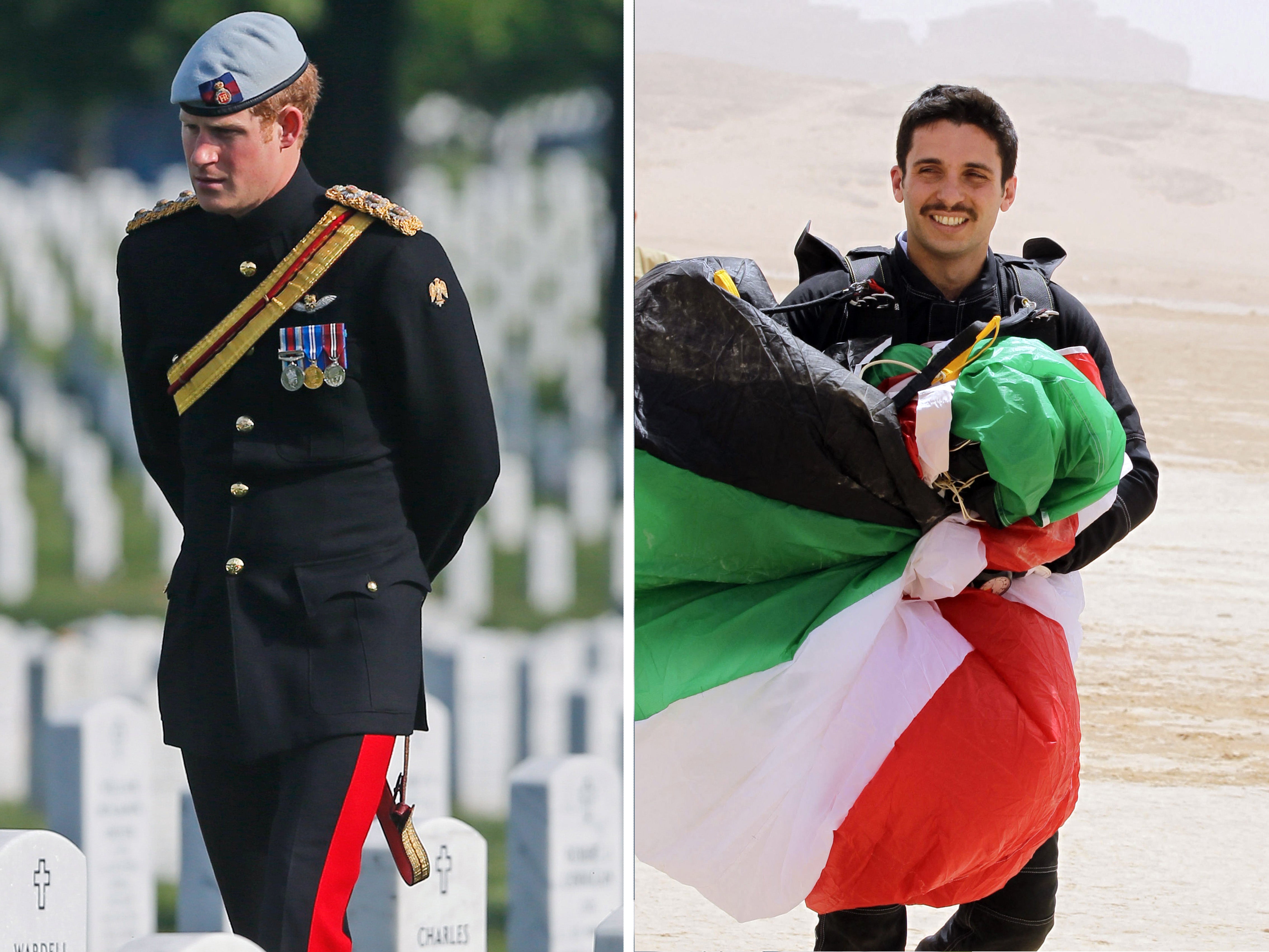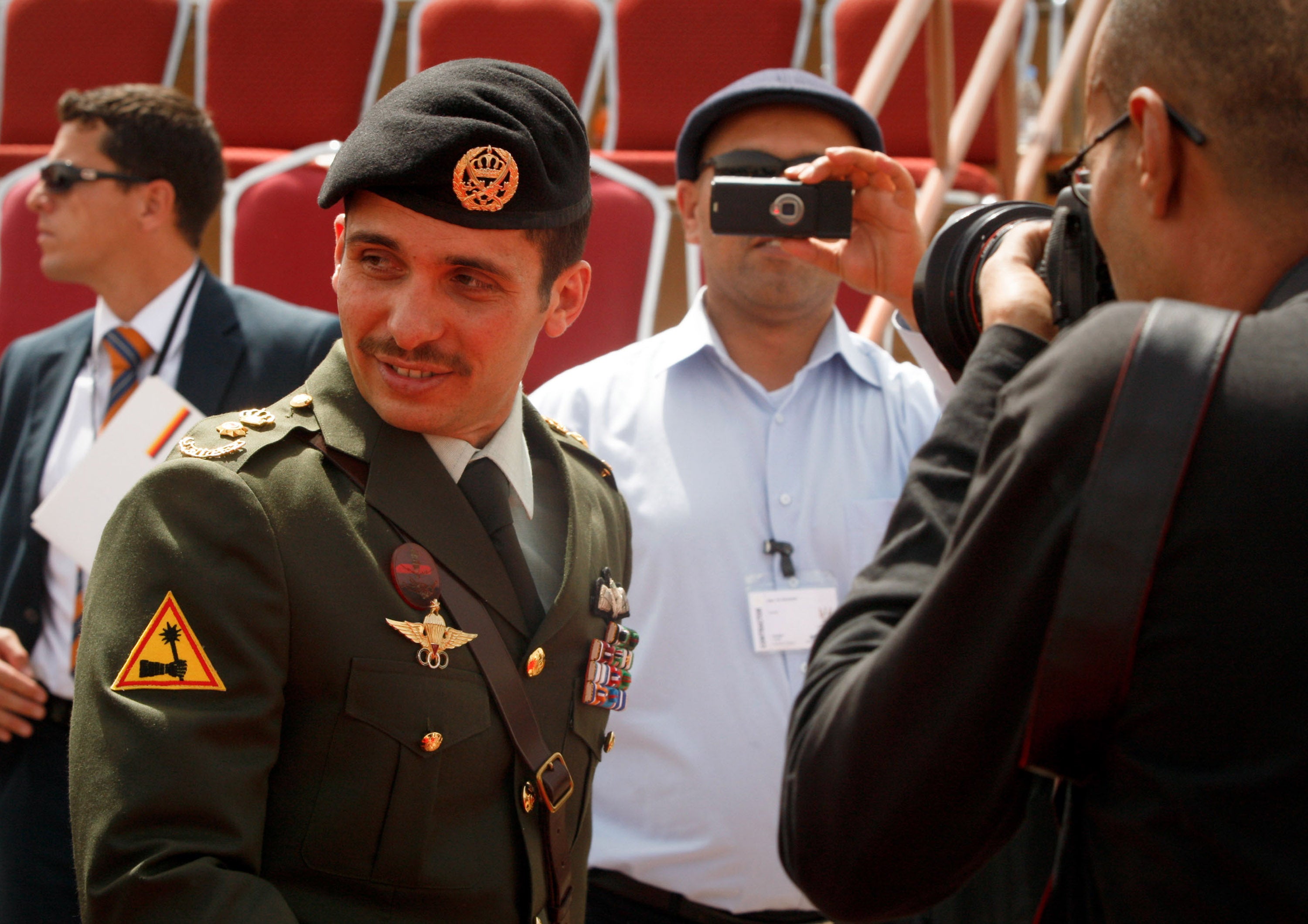Jordan’s Prince Hamzah is not unlike ‘our’ Prince Harry
A strong-minded individual who finds himself with not much to do, who is not afraid to speak out. Who do you think I’m talking about, writes Chris Blackhurst... Harry or Hamzah?


Your support helps us to tell the story
From reproductive rights to climate change to Big Tech, The Independent is on the ground when the story is developing. Whether it's investigating the financials of Elon Musk's pro-Trump PAC or producing our latest documentary, 'The A Word', which shines a light on the American women fighting for reproductive rights, we know how important it is to parse out the facts from the messaging.
At such a critical moment in US history, we need reporters on the ground. Your donation allows us to keep sending journalists to speak to both sides of the story.
The Independent is trusted by Americans across the entire political spectrum. And unlike many other quality news outlets, we choose not to lock Americans out of our reporting and analysis with paywalls. We believe quality journalism should be available to everyone, paid for by those who can afford it.
Your support makes all the difference.In conversation with some Jordanian friends in London at the weekend, the subject matter turned inevitably to the coup that never was – the supposed plan of Jordan’s Prince Hamzah bin Hussein to overthrow his half-brother, King Abdullah.
Instead of condemning Hamzah they were full of sympathy for him. His situation, they explained, was not unlike that of “your Prince Harry”.
He’s a strong-minded individual who finds himself with not much to do, who is not afraid to speak out. He’s constantly battling the constraints of a stuffy court system; he’d been reined in by courtiers overstepping the mark.
Put like that, Hamzah’s case does sound familiar. On Saturday, Hamzah, 41, claimed he was being held under house arrest, accused of trying to destabilise the country. He said a senior official had told him he was not allowed to go out or communicate because of criticisms of the government or king voiced at meetings where he had been present. He was said to have visited tribal elders, allegedly to seek their support.
Read More:
The following day, the deputy prime minister, Ayman Safadi, accused Hamzah of liaising with unnamed foreign parties. Seemingly, the prince had been put under surveillance by the security services. Safadi said that at least 16 people, including a former adviser to Abdullah and another member of the royal family, had been arrested.
Safadi accused the prince of seeking to turn “clan leaders against the government”. He said officials had tried to discourage the prince rather than take legal action against him, but Hamzah had “dealt with this request negatively”.
The oldest son of the late King Hussein and his favourite wife Queen Noor, Hamzah went to the UK’s Harrow School and the Royal Military Academy at Sandhurst. He also attended Harvard University in the US.
He was named crown prince in 1999 and appeared to be the heir to King Hussein, who described him in public as the “delight of my eye”. But when Hussein died, Hamzah was regarded as too young and inexperienced to succeed and instead the throne of the Hashemite kingdom went to his older half-brother, Abdullah. The humiliation of Hamzah and his mother, Queen Noor, who wanted her son to become king, was compounded in 2004, when Abdullah relieved him of the title of crown prince and gave it to his own son.
Just like Harry, Hamzah has lacked a purpose. Like Harry, he’s been unafraid to criticise the leadership – in Hamzah’s case for condoning corruption and for being incompetent.
Tensions have been reduced, for now, by Hamzah pledging allegiance to Abdullah and saying he is committed to the constitution.

For a while, though, it did look as if Jordan’s relative calm was under threat. Safadi’s dramatic intervention gave credence to talk of a plot against the king, and the immediate voicing of support for Abdullah from several foreign nations suggested they knew something serious was afoot.
Others, though, question this interpretation. Safadi, they say, may have been overzealous and keen to strengthen the hand of his master, the king. As for the countries quickly falling in behind Abdullah, that may have been more to do with the importance they attach to Jordan’s strategic position in the Middle East, and their desire for its stability not to come under attack. Some sort of revolution in Jordan with all the unpredictability that would bring, was the last thing they wanted in a region permanently on the edge of conflagration.
As any plotter of coups knows, the first priority is to shore up the military, to get the generals onside. Significantly, no one from the armed forces was among the 16 seized, giving weight to the belief this was more the spilling over of an internal dispute within the royal family rather than a full-blooded insurrection.
Read More:
It went public because the intelligence agencies were overreacting and anxious to shore up their own position by propping up Abdullah. They were frustrated at Hamzah’s refusal to remain silent and found him difficult to rein in, given his royal status. The security forces enjoy growing power in Jordan – their muscle has been enhanced by the Covid pandemic and the need for fierce controls – and this may be evidence of their tightening grip.
While the immediate drama has defused, the issue of what to do about Hamzah has not gone away. Like Harry, he is passionate about environmental issues. One suggestion is that he could be asked to play a role for Jordan at the COP26 climate change talks. He headed Jordan’s Royal Advisory Committee on the Energy Sector and he is closely involved with the Scotia Group, a push to create an Arabic majlis or council, of international political leaders, academics, business figures and lawyers, to make climate change legally binding and enforceable.
Join our commenting forum
Join thought-provoking conversations, follow other Independent readers and see their replies
Comments